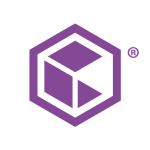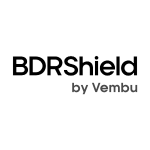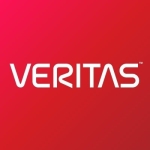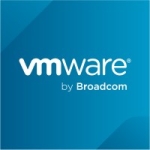We primarily use Zerto as a disaster recovery tool to handle data transfer between virtual machines. Currently, Zerto is implemented on-premises, as 90 percent of our services reside there. However, we plan to migrate some services to the cloud and utilize Zerto's migration capabilities to move VMs directly from our on-premises environment to the cloud. This is a crucial feature for us, as our virtualization technique relies heavily on VMware, and Zerto allows for straightforward migration of critical VMs to the cloud.
Our multi-campus university faced challenges delivering services hosted in a single location to geographically dispersed users. The extensive data volume and risk of outages due to disasters led us to implement a Disaster Recovery and Continuity setup. This involves hosting primary services in one data center and maintaining a disaster recovery site in another. Zerto's replication technology allows us to continuously update data at the DR site, ensuring data currency and the ability to roll back to a stable version quickly.
Zerto is straightforward to implement because it only requires the installation of an agent on the VMs designated for migration. A service, typically a VM, must also be deployed at the disaster recovery location. This entire process is simple and can be completed within three days.
Zerto's near-synchronous replication occurs every minute, allowing for highly granular recovery points. This means that even if interruptions or malware disruptions occur within that minute, Zerto can restore to the last known good state, effectively recovering the entire setup to the latest backup. This capability ensures high data security and minimizes potential data loss.
One of the main benefits of implementing Zerto is its data compression, which significantly reduces the load on our IPsec VPN. Zerto compresses data by 80 percent before transmitting it across the VPN, minimizing the data transferred between geographically dispersed locations. This compression and subsequent decompression at the destination alleviate the strain on the VPN, preventing overload and ensuring efficient data synchronization.
Zerto simplifies malware protection by integrating it into its disaster recovery and synchronization features. This comprehensive approach eliminates the need for separate antivirus setups in virtual machines and applications. It streamlines our security measures and removes the need for additional software or solutions, resulting in an excellent return on investment.
Zerto's single-click recovery solution offers exceptional recovery speed. Through the user interface, a single click allows for a complete restoration from the most recent backup within two to three minutes, enabling rapid recovery and minimal downtime.
Zerto's Recovery Time Objective is excellent. In the past, if a virtual machine crashed, we would recover it from a snapshot, which could take one to two hours. With Zerto, the recovery process takes only five minutes, and users are typically unaware of any disruption. This allows us to restore everything quickly and efficiently.
Zerto has significantly reduced our downtime. When malware affects our data, Zerto immediately notifies us and helps us protect other applications, even those not yet implemented with Zerto. By monitoring these applications, we can quickly identify and address any potential malware spread, minimizing downtime across our systems.
Zerto significantly reduces downtime and associated costs during disruptions. Our services are unified, so in the event of a disruption without Zerto, even a half-day disruption would necessitate offline procedures. This would lead to increased manpower, service delays, and substantial financial losses due to interrupted admissions and other critical processes. By unifying service processes, Zerto minimizes the impact of outages.
Zerto streamlines our disaster recovery testing across multiple locations by enabling efficient failover testing without disrupting live services. Traditionally, DR testing required downtime of critical systems, but Zerto's replication and failover capabilities allow us to test in parallel with live operations. This non-disruptive approach ensures continuous service availability while validating our DR plan, even in scenarios like malware attacks, by creating a separate testing environment that mirrors the live setup. This comprehensive testing provides confidence in our ability to handle real-world incidents effectively. This saves us over 60 percent of the time.
Zerto streamlines system administration tasks by automating many processes, thereby reducing the workload for multiple administrators. This allows them to focus on other university services that require attention and effectively reallocate support resources from automated tasks to those requiring more dedicated management.
Zerto is used exclusively for our critical services, providing up to a 70 percent improvement in our IT resilience.
One of the most valuable features of Zerto is its straightforward cost model. It's essentially a one-time purchase, meaning you pay once and can use the software indefinitely despite the three-year license. This non-licensing-based approach allows for long-term use with a single purchase. Additionally, Zerto offers excellent technical support with responsive and helpful experts.
Zerto's pricing model is cost-prohibitive for small—to medium-sized businesses. Its structure limits affordability to approximately five to ten virtual machines. To increase accessibility for small and medium businesses, Zerto should consider a competitive pricing strategy, possibly including subscription-based licensing options. This would enable more organizations to utilize Zerto's services.
I want Zerto to add support for Proxmox.
I have been working with Zerto for one year.
Zerto is scalable; however, the primary concern remains the cost, especially if needing to scale to 300 virtual machines. It is more cost-effective to use fewer virtual machines.
Zerto's technical support is superb. Following HP's acquisition of the product, significant improvements have been made.
The initial setup was straightforward. We implemented it in two geographically separated campuses, setting up one server and adding another for disaster recovery. Zerto's demo provided a solid understanding and clear strategy for the implementation.
We did not use third parties for deployment; our on-premises engineers handled it. Only two to three staff members were needed.
The return on investment is evident, as Zerto saves more than 60 percent of time in various operations compared to the previous manual processes. The savings extend to hardware and resource allocation, which were reduced by Zerto’s efficient backup solutions.
I rate Zerto ten out of ten.
Our on-premises firewall provides a basic level of security, but it cannot guarantee complete application security. Therefore, the application, including Zerto, must have robust security measures to mitigate any vulnerabilities. Even with a firewall, loopholes can exist, potentially compromising Zerto and other services. To ensure comprehensive security, we can integrate Zerto with our security firewall, enhancing protection and minimizing the risk of software compromise. Ultimately, Zerto remains our primary solution for software recovery in case of a security breach.
Zerto requires minimal maintenance due to its operation on virtual machines. Three people are required for the maintenance.
We have Zerto on 300 virtual machines in our environment.
Zerto's capabilities would greatly benefit organizations with on-premises and on-cloud setups, as it facilitates seamless migrations. It is highly recommended for anyone prioritizing data security and disaster recovery assurance.




















